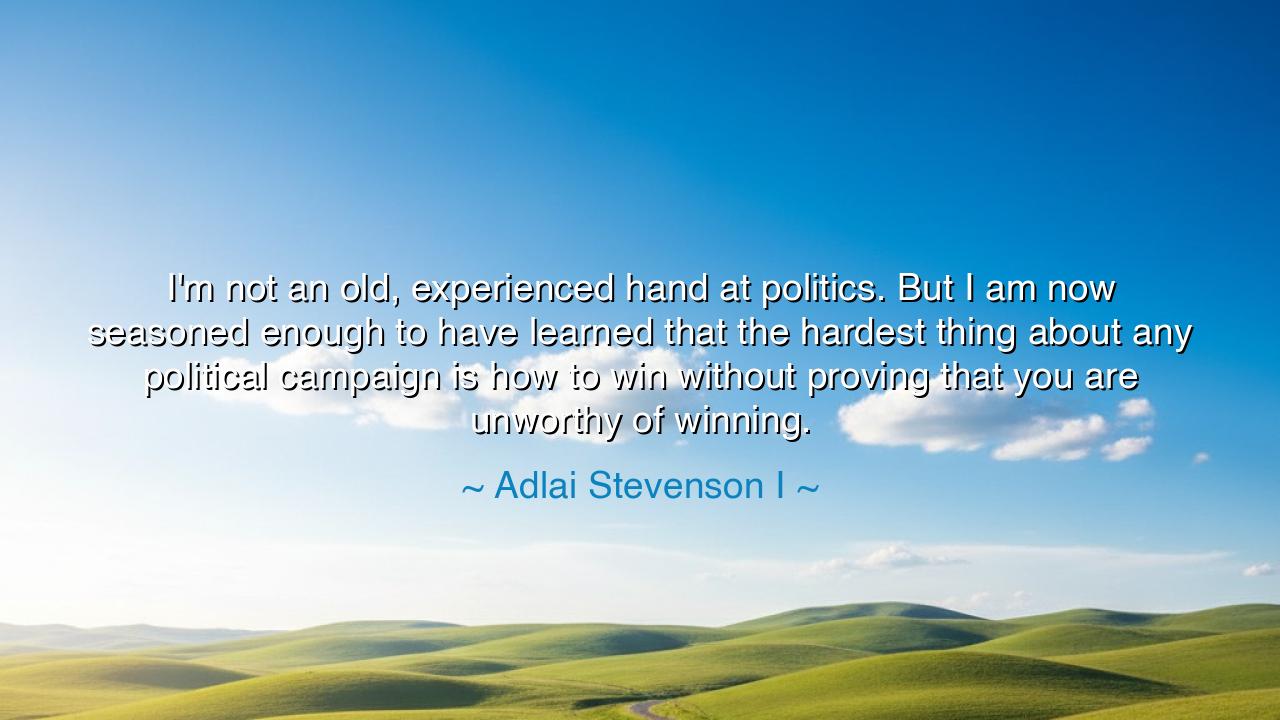
I'm not an old, experienced hand at politics. But I am now
I'm not an old, experienced hand at politics. But I am now seasoned enough to have learned that the hardest thing about any political campaign is how to win without proving that you are unworthy of winning.






When Adlai Stevenson I declared, “I’m not an old, experienced hand at politics. But I am now seasoned enough to have learned that the hardest thing about any political campaign is how to win without proving that you are unworthy of winning,” he struck upon one of the eternal paradoxes of power. For in politics, the path to victory is strewn with temptations—to deceive, to slander, to flatter, to betray. Many reach the prize of office only by soiling their honor in the pursuit, thus proving themselves unworthy of the very trust they sought to claim.
The ancients knew this snare well. In Athens, candidates for office promised the people wealth, glory, and conquest, only to abandon virtue once in power. In Rome, political campaigns were drenched in bribes, corruption, and assassinations. Cicero himself lamented that to survive in politics often meant to act against the very ideals that justified one’s service. Stevenson, standing in this long line of mournful witnesses, recognized that the true difficulty was not winning—but winning with dignity intact.
History offers vivid proof of this struggle. Abraham Lincoln, during the storm of 1860, faced a nation divided and hostile. He could have won more easily by pandering to hatred, but he refused to cheapen his message of unity and liberty. His triumph, therefore, was not only electoral but moral, for he entered office still worthy of winning. Contrast this with Richard Nixon a century later, whose victory was stained by deception, and whose fall proved Stevenson’s warning: a hollow victory becomes a lasting defeat.
Stevenson’s words also speak to the personal battle within each candidate. To campaign is to be tested by ambition, to balance the hunger for victory against the higher call of principle. It is to resist the whisper that the end justifies the means. The hardest task, Stevenson teaches, is to walk through the fire of competition without being consumed by it, to reach the summit still carrying the light of honor.
Thus, let this wisdom be passed to future generations: winning is not the measure of greatness—worthiness is. For to seize victory by unworthy means is to prove oneself unfit to govern. But to win while holding fast to truth, dignity, and justice is to embody the highest calling of politics. Stevenson’s words are a warning and a guide: do not lose your soul in pursuit of office, for the greatest triumph is not to conquer others, but to remain true to yourself.






AAdministratorAdministrator
Welcome, honored guests. Please leave a comment, we will respond soon